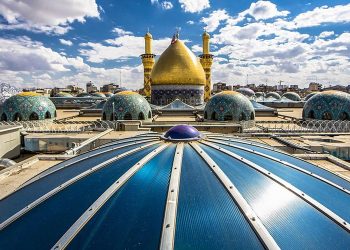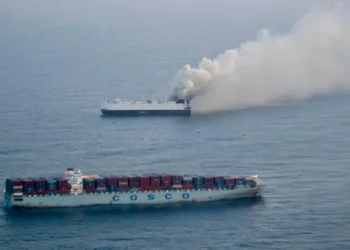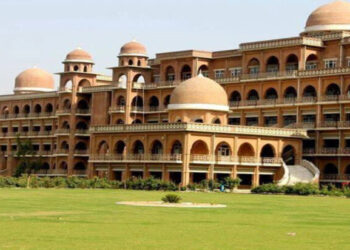In a significant move to combat the rising levels of smog and air pollution, the Lahore High Court (LHC) on Friday issued several directives, including a mandatory 8 pm market closure for cities across Punjab. Shops will also remain closed on Sundays as part of the court’s broader strategy to reduce air pollution.
During a hearing focused on the growing smog crisis, Justice Shahid Karim of the LHC laid out a series of urgent measures aimed at improving air quality in Lahore, one of the most affected cities in the region. The court’s actions came in response to petitions filed by Haroon Farooq and others, urging swift government intervention to tackle the worsening air pollution.
Key Directives:
Market Closures: The court ordered that all markets in Punjab must close by 8 pm daily. Additionally, all shops will remain closed on Sundays in an effort to reduce emissions from vehicles and industrial activities during peak hours.
Traffic and Vehicle Restrictions: The court directed that trucks, trailers, and other heavy vehicles be prohibited from entering the city, identifying their emissions as one of the leading contributors to smog. The Dolphin Police and traffic personnel have been instructed to ensure the enforcement of these measures and closely monitor heavy traffic on the streets of Lahore.
Ban on Smoke-Emitting Vehicles: The court also issued a stern warning regarding the continued operation of smoke-emitting buses. Justice Karim proposed a fine of Rs. 50,000 for vehicles violating air quality standards. The judge expressed his frustration, asking, “If notice has been issued to buses, why are they still on the roads?”
Work-From-Home Policy: To further reduce exposure to pollutants, the court ordered the implementation of a work-from-home policy for government offices and non-essential workers, particularly during high-pollution days.
Ban on Smoke-Emitting Vehicles on Motorways and Ring Roads: A new ban was also enforced on smoke-emitting vehicles entering the motorways and ring roads, restricting their access to reduce overall emissions in and around urban areas.
Long-Term Strategy:
While the measures are aggressive, Justice Karim acknowledged the scale of the smog crisis and pointed out that these actions alone would not resolve the issue in a single year. However, he expressed hope that substantial improvements would be visible over the next five years.
Drawing inspiration from China’s successful efforts to reduce air pollution, Justice Karim stressed the need for consistent and long-term efforts to tackle the smog problem effectively. He cautioned that this would be a continuous battle requiring dedication from both government authorities and the public.




































